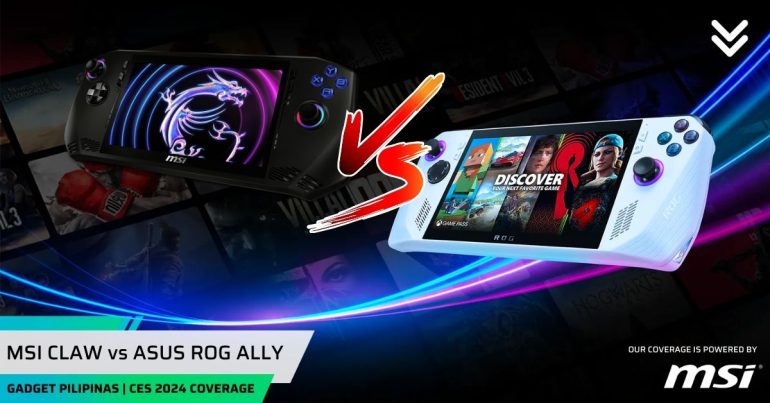MSI Claw vs ASUS ROG Ally
The MSI Claw and ASUS ROG Ally represent two of the most powerful and innovative gaming handhelds unveiled at CES 2024 and May 2023, respectively.
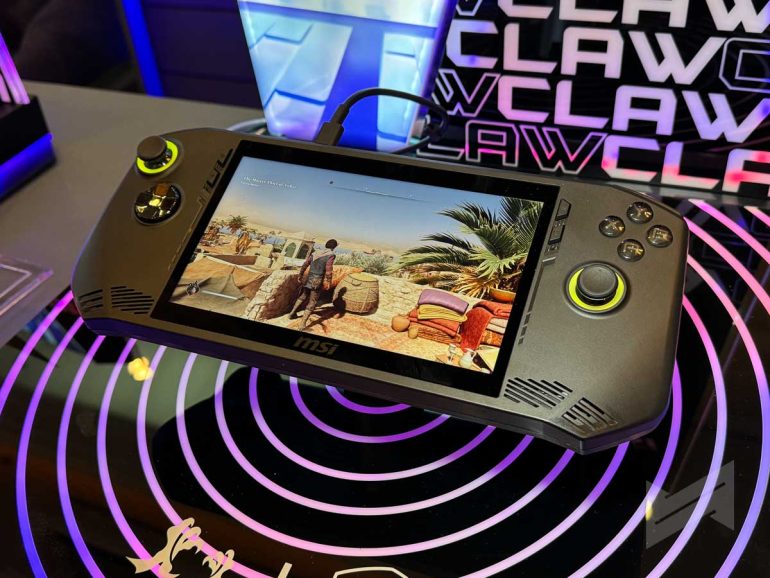
As the world’s first handheld powered by an Intel Core Ultra processor, the Claw promises exceptional performance and graphics capabilities. The ROG Ally features an AMD Ryzen Z1 Extreme processor, offering impressive processing power optimized for handheld gaming.
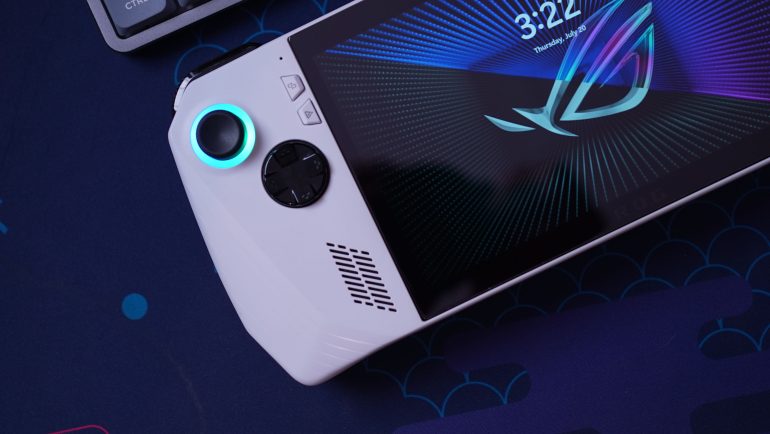
Processing Power
The Core Ultra processor gives the Claw a strong processing advantage, with the top configuration boasting an Intel Core i7-155H processor based on a 10nm architecture. With a max clock speed over 5GHz and support for hyperthreading, it should deliver smoother gameplay performance across demanding AAA titles compared to the ROG Ally’s Ryzen Z1 Extreme.
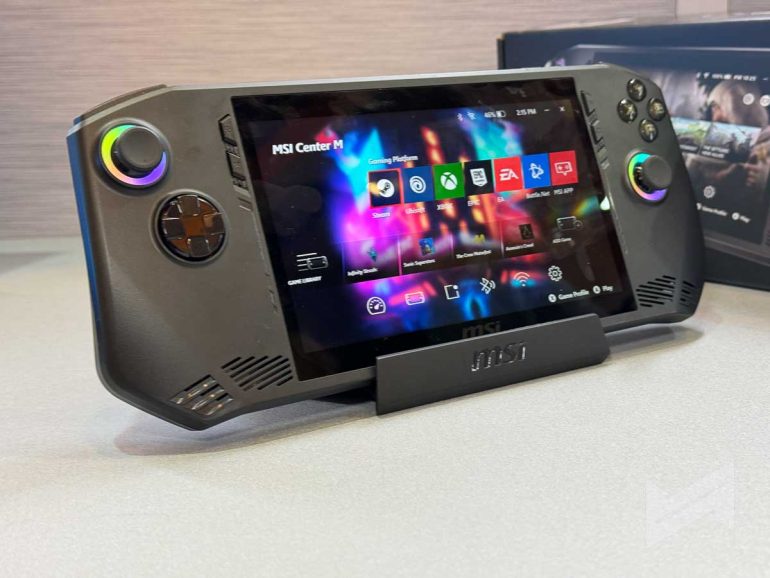
However, the Ryzen Z1 Extreme is no slouch, utilizing AMD’s latest “Zen 4” architecture in an 8-core, 16-thread design optimized for handheld gaming with a max boost clock of 5.1GHz. Both provide desktop-class performance, but the Claw’s Core i7 likely has a slight edge. We will know this for sure when we review the MSI Claw very soon.
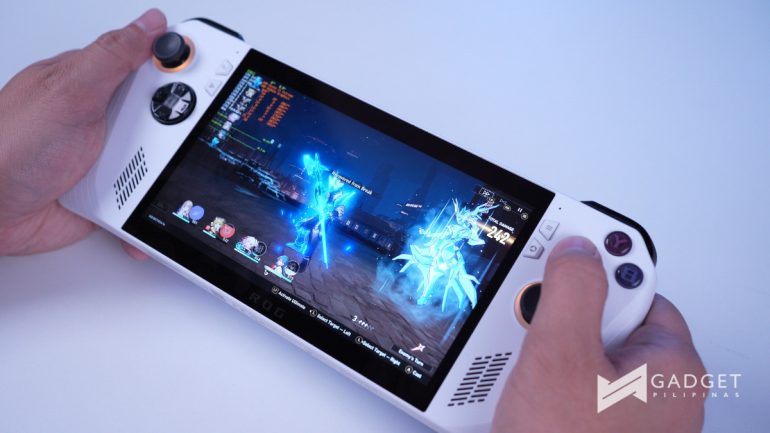
Read our Hand-on Impressions article of MSi Claw here.
Graphics
Graphics are a close matchup between these two handhelds. The Claw utilizes Intel’s cutting-edge Arc discrete graphics based on the Xe-HPG architecture, configurable up to 8 Xe cores and featuring advanced XeSS upscaling technology. Combined with the powerful Core Ultra processor, it promises smooth 1080p gaming at medium settings across AAA games. As the the first handheld gaming device to run this chipset, it is exciting to know how this will run games at 7-9 TDP and see how they fare when played on the Ally.
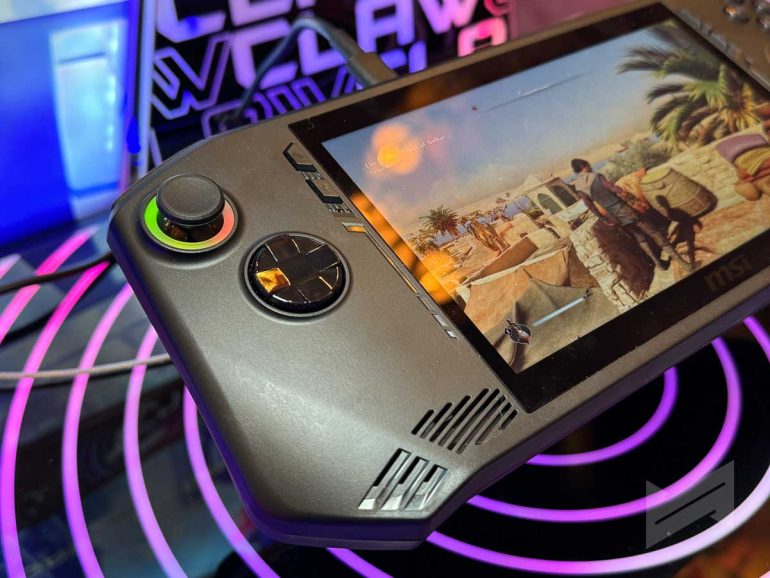
Meanwhile, the custom Ryzen Z1 Extreme SoC features integrated RDNA 3 graphics with 12 compute units and a max clock of 2.7GHz, delivering up to 8.6 TFLOPs for console-quality graphics. So while the Core Ultra’s Arc graphics seem theoretically more advanced, both handhelds should provide excellent 1080p gaming experiences. However, the ROG Ally also supports AMD FreeSync Premium for tear-free gameplay.
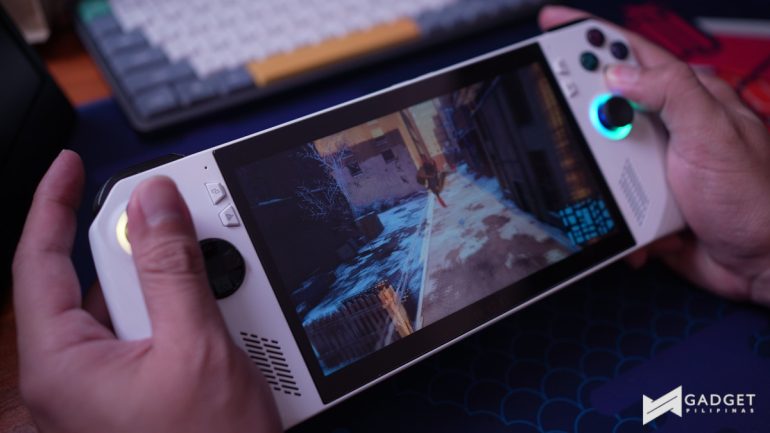
Display and Ergonomics
Both devices offer 7-inch IPS touchscreen displays with Full HD 1080p resolution, 500 nits peak brightness and 120Hz refresh rates for smooth, vivid visuals. That said, the ROG Ally’s panel boasts a faster 7ms response time versus undefined for the Claw. It also implements Gorilla Glass Victus and supports Dolby Vision HDR. Regarding ergonomics, the ROG Ally is slightly more compact but the MSI Claw is but very comfortable and hand-friendly (better than the Ally in my opinion).
Battery Life and Charging
Battery life is a major advantage of the Claw, with its massive 53Wh battery rated to deliver 2 hours of gameplay under full load. This blows away the ROG Ally’s 40Wh battery which will likely manage under 2 hours. Both support 65W USB-C PD fast charging, but the Claw’s battery promises significantly longer gaming sessions while on the go.
Features and Connectivity
For features, both devices provide haptic feedback, motion controls, mappable buttons, Android app support and triple-band Wi-Fi 6E with Bluetooth 5.2. However, the ROG Ally adds a 3.5mm audio jack and a custom port for connecting to ASUS’ XG Mobile ecosystem of external GPUs for enhanced gaming capabilities – a unique option not offered with the Claw.
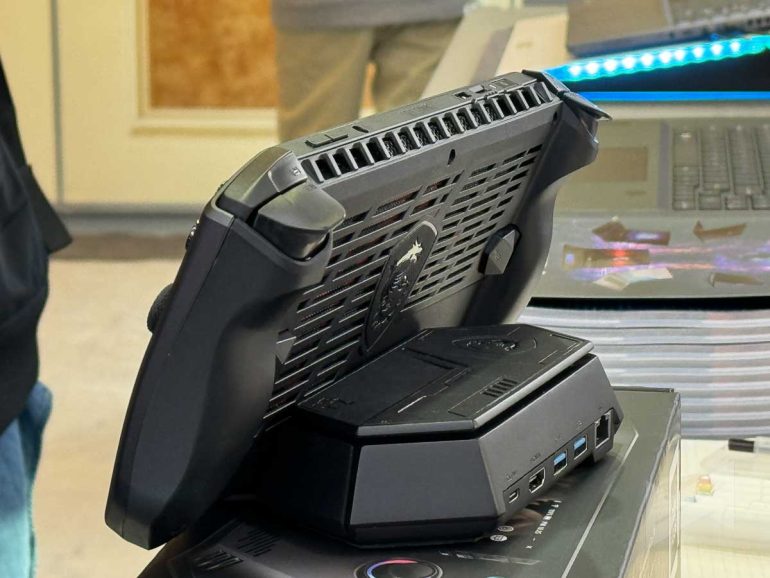
In terms of software and compatibility, the Claw runs Windows 11 and the ROG Ally offers Windows 11 or (theoretically) SteamOS 3. Both have customized interfaces tailored for handheld gaming and support all major gaming platforms like Steam and Epic Games St3ore. But the ROG Ally also bundles 3 months of Xbox Game Pass Ultimate, adding further value.
Price and Availability
MSI has not revealed pricing or exact availability for the Claw yet. Comparatively, the ROG Ally is competitively priced starting at $599.99 for the Ryzen Z1 model and $699.99 for the flagship Ryzen Z1 Extreme variant. So the ROG Ally looks to beat or match the Claw on price for the performance on offer. The MSI Claw will soon be available for pre-order for as low as $699, giving ASUS a time-to-market advantage.
What now?
Both the MSI Claw and ASUS ROG Ally represent major advancements in handheld PC gaming technology thanks to their flagship-class processors and graphics. The Claw holds an edge for raw processing power and battery life while the ROG Ally promises excellent value and unique expandability features. For pure performance and endurance, early signs point to the Claw but pricing and availability may be the ultimate deciding factors between these closely matched devices. Regardless, 2024 is shaping up to be a landmark year for gaming handhelds.
MSI Claw and ASUS ROG Ally Specifications
| Specs | MSI Claw | ASUS ROG Ally |
|---|---|---|
| Processor | Up to Intel Core i7-155H (10nm, 5GHz, hyperthreading) | AMD Ryzen Z1 Extreme (Zen 4, 8C/16T, 5.1GHz max boost) |
| Graphics | Intel Arc (up to 8 Xe cores, XeSS support) | Integrated RDNA 3 (12 CUs, 8.6 TFLOPs) |
| Display | 7″ IPS, FHD, 500 nits, 120Hz refresh | 7″ IPS, FHD, 500 nits, 120Hz, 7ms response time |
| Memory | 16GB LPDDR5 | 16GB LPDDR5 |
| Storage | 512GB / 1TB 1x NVMe M.2 2230 PCIe Gen 4 SSD | 512GB PCIe 4.0 M.2 SSD |
| Battery | 53Wh, 2 hr runtime | 40Wh, < 2 hr (estimated) |
| Charging | 65W USB-PD | 65W USB-PD |
| Connectivity | Wi-Fi 6E, Bluetooth 5.4, Thunderbolt 4 | Wi-Fi 6E, Bluetooth 5.2, USB 3.2 Gen 2 |
| Features | Windows 11, customizable UI, haptics | Windows 11/SteamOS 3, Xbox Game Pass, external GPU support |
| Weight | 675g | 608g |
| Dimensions | 294 x 117 x 21.2mm | 280 x 111 x 21.2mm |
| Launch | TBA | Available now ($599+) |
Giancarlo Viterbo is a Filipino Technology Journalist, blogger and Editor of gadgetpilipinas.net, He is also a Geek, Dad and a Husband. He knows a lot about washing the dishes, doing some errands and following instructions from his boss on his day job. Follow him on twitter: @gianviterbo and @gadgetpilipinas.

